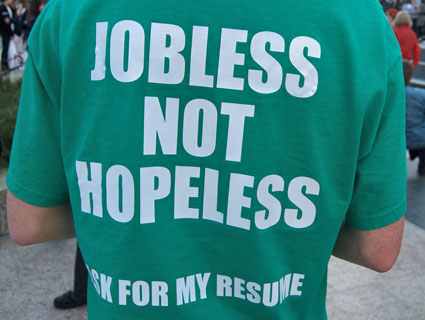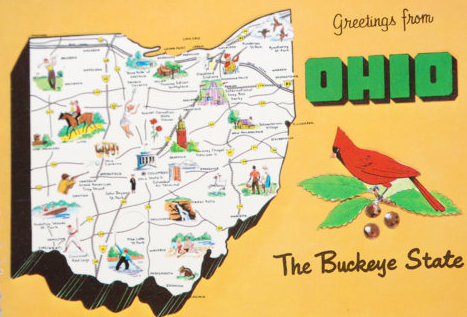Editors’ note: Mac is spending a month in her home state of Ohio, reporting on the Wisconsin-style showdown involving Republican Governor John Kasich, public employees, unions, teachers, students, and struggling middle-class families.
“So, why is it that you’re here?” one of my father’s coworkers, Mike, asked me. We were in the backseat of his boss James’ Lexus. My dad was in the front. Together, the three of them account for three of the Lexuses (Lexi?) in the office parking lot.
“Because you guys are the only people I know here without any job- or financial-security concerns,” I said.
“Really?”
“Yeah.”
“You don’t know the right kind of people.”
Over lunch at a Thai restaurant, James explained why business is so steady at their firm, which companies hire to find them the managers and VPs and CEOs they need. “We work with people in the $100,000-plus range,” James told me. The average salary of a person they place is $130,000, but they can deal in much “bigger fish,” as my father calls them; right now, for example, he’s been tapped by a company to find them the right candidate for a position that pays $600,000. Last year he placed someone who made $1.4 million annually, and another who made $1.5 mil. “The unemployment rate for people who make $100,000-plus is only 4 percent,” James said. That never changes much. So over the last few years, while the economy’s been…troublesome for a lot of other types of businesses, profits at the firm have been steady.
“Do you guys have unlimited capacity to absorb more employees? The market would support that, and support their being successful?”
“Oh yes,” James said.
Their firm is part of a global group with 4,400 employees. James keeps his firm to 22, because his preference is a smaller, closer working environment. Mike is the star of the whole damn global show, the highest grosser. He generally bills more than a million dollars. Last year, my dad only billed $630,000. Though he admits he would probably make more if he worked more than 12 hours a week.
He wasn’t always this fancy! About 15 minutes after I graduated from college, he got fired from his position at the head of a company; our overmortgaged, overfinanced house and cars all had to go back to the banks and dealerships that rightfully owned them. Both my parents were unemployed and effectively homeless for a while. And way before that, in order to get to that, he’d worked his way up from being a day-laborer at a moving company. After lunch, he was talking about how shortly before I was born, he made $10 an hour.
“You did not make $10 an hour,” I said. That’s the same wage that a lot of moving companies pay now, I offered as proof that he was wrong.
“Exactly,” he said. “That’s the problem. The cost of living has gone way up, but wages have just been”—and here he made a box in the air with his hands and sort of a Tupperware-closing sound with his mouth—”locked in.” In 1980, when the value of $100 was the equivalent of $274 today, he got his first management job at a Cleveland business with a high-school diploma for $28,000 a year. In 2007, I got my first magazine job with a master’s degree for $27,000.
My dad’s been at the firm since 2003; he got into the people-who-make-more-than-$100,000-a-year, unemployment-resistant job world just in time. Everybody at the office is totally in love with super-supportive James, and they have a room where you can take naps, and they put plaques with your face etched in bronze all over the walls when you’ve billed for the firm a million, and two million, four million dollars. “Recessions,” my dad often says, “don’t affect people like me.”

















